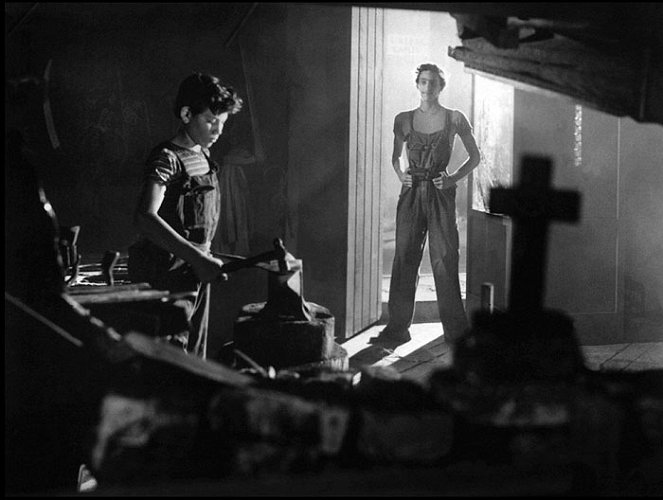Ohjaus:
Luis BuñuelKuvaus:
Gabriel FigueroaSävellys:
Rodolfo HalffterNäyttelijät:
Estela Inda, Miguel Inclán, Alfonso Mejía, Roberto Cobo, Francisco Jambrina, Victorio Blanco, Charles Rooner, Diana Ochoa, José López (lisää)Juonikuvaukset(1)
With love but without pity, Buñuel tells the story of a gang of slum kids who become delinquents as a defense against poverty and the cruelty of life on the city streets. In the characters of Jaibo, the gang leader, and Pedro, his naive victim, Buñuel makes a subtle distinction between corruption and law breaking. (Denver International Film Festival)
Arvostelut (3)
I had more than mixed feelings towards the content-less Un Chien Andalou, but Buñuel this time showed me with this sharply critical work that he has the craft in a firm grip, and that he can speak a global and even intergenerational language when he wants to. A conceptually important film, which, thanks to its uncompromisingly realistic mood, where the characters jump from the pan to the fire, with their parents happily throwing tinder under their feet, attacks the boundary of high cinematic naturalism and creates a stimulating social vision whose relevance has not faded even after more than half a century. Neither the lack of a single shocking moment that would surprise me and blow my mind, nor some of the director's forced artistic insertions that don’t fit the story (although the dream sequence, for example, is visually impressive) can detract from the film's power and credibility. 85%
()
A social drama that seems to have come from the workshop of Italian neorealists. The left-wing-oriented Buñuel never denied his strong social sensitivity and filmed a suggestive story of poor adolescents from the slums on the outskirts of Mexico City. A very impressive testimony about poverty and the inability to break free from one's social group at the time. Overall impression: 80%.
()
Luis Buñuel presents an unpleasant image of Mexico. Its power lies in how it coldly encompasses everything, with even the music remaining almost indifferent, only occasionally intensifying. What the film "The Forgotten" depicts is a cruel life, without embellishments, but also without hope. And why not? Why couldn't someone live in something similar? Surprisingly, the connection with dreams adds even greater realism to it.
()
Kuvagalleria (16)
Kuva © Ultramar Films


Mainos